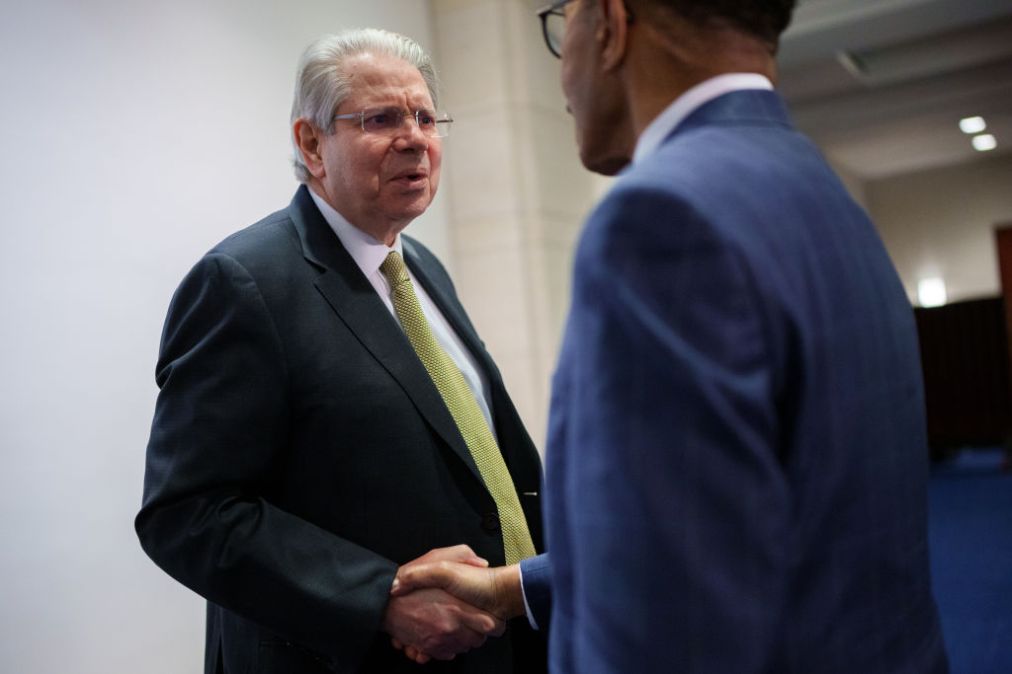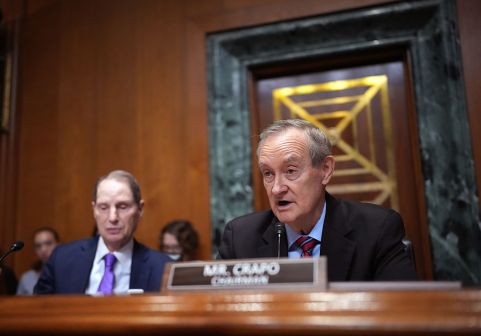After a slow start, GAO says it’s now hearing from DOGE

Elon Musk’s discovery of Government Accountability Office reports in the weeks after President Donald Trump’s election gave some federal efficiency advocates hope that the world’s richest man might seek guidance from the congressional watchdog on easy, previously identified cost-saving measures.
Those hopes were quickly dashed in the first month of Trump’s second term: Musk’s so-called Department of Government Efficiency took a chainsaw to the federal workforce and burrowed into agency IT systems, while the GAO heard barely a word from the insurgent tech collective.
But according to Comptroller General Gene Dodaro, things have changed since he told members of the House Oversight and Government Reform Committee in late February that the “extent” of DOGE’s contact with GAO were some questions about a Treasury Department payment systems report.
Appearing Wednesday before the House Appropriations Committee, Dodaro cited the GAO’s work with DOGE while making the case for the 15% budget increase the watchdog is seeking for fiscal year 2026.
“Our request will ensure that we can provide more timely information to Congress, that we can give Congress recommendations to make the government more efficient and effective,” he said. “And we’ve been engaged with some of the Department of Government Efficiency efforts, and they’re actually using our recommendations to help carry out their activities.”
When asked for details about the GAO’s contact and work with DOGE, an agency spokesperson told FedScoop that staff from the Musk-led group “have reached out about our past work and recommendations at different agencies. We have had productive discussions with those staff about our findings and implementing our recommendations.”
That uptick in collaboration has come at what could otherwise be considered an awkward time for the two parties: Wired reported Wednesday that the GAO has been auditing DOGE since March, examining how it has handled data at the Social Security Administration and the departments of Treasury, Education, Labor, Homeland Security and Health and Human Services.
DOGE’s forays into IT networks at Treasury, Education, SSA, the Office of Personnel Management and others have sparked litigation, and Democratic lawmakers have asked the GAO and inspectors general to investigate the group’s work within those sensitive systems. Treasury’s OIG said in February that it would audit DOGE access to payment systems.
The GAO, meanwhile, is factoring newfound national interest in government efficiency into its $933 million fiscal 2026 budget request. Dodaro said Wednesday that increased attention in the kind of work GAO does “has raised our profile,” necessitating more resources for “computer security defenses.”
“We’re anticipating and seeing more hits on our website by threat actors and others,” he said. “It’s up about 30% this year from what it was last year, and last year was high. So we need some money in order to be able to do that as well.”
The GAO expects to lose about 126 staffers due to the continuing resolution, Dodaro said, so the budget request takes into account those likely staffing shortages. Responding to the over 600 requests from Congress per year — and identifying the kinds of waste, fraud and abuse DOGE purports to be targeting — takes time and manpower. But the comptroller general believes it’s worth the investment.
“Last year, as a result of implementation of our savings, over $68 billion in financial benefits accrued to the government,” he said. “Over the last six years, we’ve returned $123 for every dollar that you’ve given us at the GAO.”






